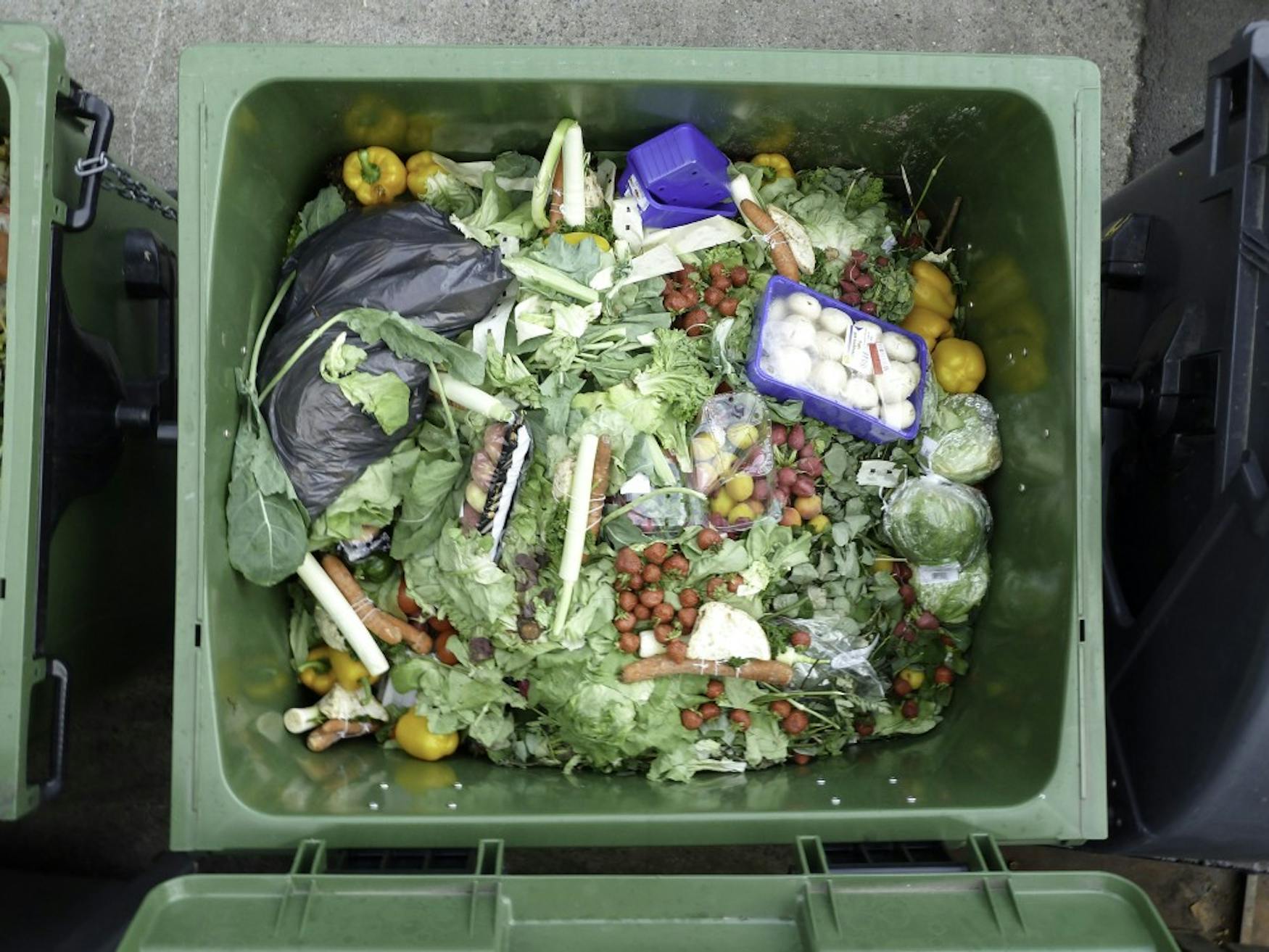‘Wasted’
How food waste contributes to climate change and world hunger
Across the United States, many people go about their daily lives eating only half the sandwich they bought from the corner store, throwing out extra produce that has gone bad and subscribing to the notion that food cannot be eaten post-expiration date.
On Nov. 2, the Campus Activities Board hosted a screening in the Mandel Center for Humanities of the movie, “Wasted! The Story of Food Waste.” The film issued an urgent address for global action to help reduce food waste.
In the opening minutes, the film stated that the United States is among the worst perpetrators of food waste in the world. According to the narrator, “40 percent of the food being produced [in the U.S.] is going to waste.” This is problematic because, as is mentioned later in the film, “one out of five children in America does not have enough to eat.”
As explained through a series of on-camera interviews with chefs like Mario Batali and Anthony Bourdain, as well as environmental activists, food requires oxygen to efficiently biodegrade. When wasted food is brought to a landfill, it sits beneath tons of other waste that prevent access to oxygen, causing it to break down anaerobically and release methane (a greenhouse gas that traps heat twenty-eight times more effectively than carbon dioxide).
According to Tristram Stewart, an author and lecturer on food waste at Cambridge University, grocery stores are the biggest contributors to what he called the “food waste crisis.” He explained that in an effort to give consumers a sense of endless choice, American supermarkets purposely overstock produce knowing that a large percentage of the food will be thrown away rather than purchased at the end of each month. He suggests that if supermarkets did not overstock, they could solve a significant amount of the world’s food waste problems overnight.
But grocers aren’t the only culprits; American consumers must also change their shopping habits. As Bourdain noted, most people won’t buy food that is being sold past its expiration date, although most items, with the exception of meat and dairy products, can be safely consumed well beyond that date. He suggested that such labels are designed to help sellers rotate produce rather than indicate to consumers what is and is not safe to eat.
According to Bitali, American consumers are “too picky” about what they are willing to eat. A stark example of this in the fishing industry, where Americans choose to eat very specific seafood such as Atlantic Salmon or Shrimp. Immediately following a scene of fisherman picking out the fish that would satiate the American taste, the narrator explained that for every pound of shrimp caught, six pounds of other seafood are wasted. While there are many edible fish, Americans limit themselves to what is familiar. Porgi, which Bitali says, “would otherwise be delicious,” is viewed in general society as a “garbage fish” and has to be rebranded in order for restaurants to serve the fish to customers.
Some entrepreneurs in the U.S. are responding to the issue of food waste by building their businesses around preventing it. Doug Rauch, former president of Trader Joe’s, is one such person. He intends to fight food waste through his store Daily Table, a nonprofit grocery story that recovers food from other supermarkets that would otherwise be wasted and resells it to underprivileged communities at competitive prices. Another business aiming to prevent food waste is a British brewery called Coast Ale. Although people in England consume “24 million slices of bread per day” the end crusts of the bread go to waste according to the film. Coast Ale uses the discarded end slices of bread to make beer.
Fortunately for the U.S., other countries in Europe and Asia provide examples of how governments can effectively incentivize citizens and corporations to reduce their food waste. The narrator explained that South Korea, a leader in recycling food waste, has passed laws requiring citizens to pay for every pound of food they throw away each week. Similarly, in France, restaurants are subject to fines for wasting food.
With millions of people unable to feed their families each day, “Wasted” deemed it reasonable to demand that no food be wasted. The film concluded that radical changes in how American consumers and enterprises use food are necessary. Stewart urged every consumer to be what he calls an “active citizen” by buying less food and learning from chefs how to cook in a fashion that minimizes waste. He is confident that every person in the U.S. is capable of not wasting food, but until more people take action, the food waste crisis will continue to grow.




Please note All comments are eligible for publication in The Justice.